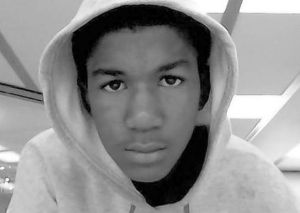In the last two years often conflicting lines have passed through me: my Christian faith, my American nationality, my black identity. I live thankfully free of direct affect of violence and racism, so these are psychological lines, but true and real nonetheless. As I consider the line of racial violence running from Trayvon to Charleston, and the lines of political rhetoric that cross through the Church, I find myself meditating on how God regards the spilling of innocent blood.
God is an avenger of the blood of innocents. The blood of Abel cried out to God for justice against his brother, Cain, in Genesis 4. The blood cries out because, as we find tucked away in Leviticus, life is in the blood, and because there is life in it, atonement is in the blood.
Where division has rent the social fabric, only blood can sew it back together. Where sin has bruised a soul, only the welling up of blood can be a balm. Where hatred, envy, lust, cowardice and other sins have separated souls from God and each other, only blood can make them one.
We see this most clearly, of course, in the spilling of Christ’s blood on the cross. The blood of this pure innocent forever cries out to God for vengeance, but also makes makes peace between God and us all, stranger and stranger, family and family. The very justice Christ’s blood cries out for, it also creates by its righteousness.
We are seeing more than ever that the spilling of innocent blood brings life. The blood of Pinckney, Hurd, Coleman-Singleton, Doctor, Lance, Sanders, Jackson, Simmons and Thompson is bringing life by drawing disparate people, separated by the sin of racism, together, and breathing life back into our nation by the taking down of its symbols to a satanic belief that people may be sold and enslaved as cattle. Innocent blood should never be spilled, yet we thank God, because He turns its spilling from death to the issuing forth of life.Yet among the hope, we must consider warning.
Innocent blood also cries out for vengeance. At the end, God’s martyrs will cry out, and their blood will be avenged, and what will become of their murderers in that day? The hidden, spiritual Powers that run the world have martyred God’s people and destroyed the lives of innocents – but we Christians have often submitted ourselves as the Powers’ willing instruments. When God closes history, will the blood on our hands condemn us? Do we suppose we also escape vengeance?
As I consider the political rhetoric of my Christian brothers and sisters, I hear the writer of Hebrews: you have not yet resisted to the shedding of your blood. I wonder if we American Christians have any concept of what this means, to resist sin, the Powers, and the god of this age, in a self-sacrificial way, laying our lives on the line for the truth?
We produce pulpit rhetoric against a few sins, yet ignore the blood on our hands – the sins so insidious they run deep through the heart of our communities: individualism, racism, imperialism, gluttony, capitalistic greed and in-hospitality – only to name the worst. Few if none of us are innocent – and none of us wants to be victims like Jesus was, for fear it denies our American, post-Enlightenment, rights-laden-with-few-responsibilities identity. Yet, if we were to pursue blamelessness, self-sacrifice, to resist sin to the shedding of our own blood, rather than continue to ally ourselves with the murderous sin structures created by the Powers, how much life would be unleashed on the earth? How might the kingdom of God flourish?
Christ, may we know. Let us know what it means to resist as you did, and, mimicking you, achieve to some extent a life of pure blamelessness. Avenge the blood of the innocent, we pray, and come in your justice. May you also have mercy on us, and on all those used by the Powers – they know not what they do. Purify us, we pray, that your gospel that we have tarnished may once against glitter as gold. Theotokos, Blessed Joseph, and all the angels and saints, please, pray for us.



